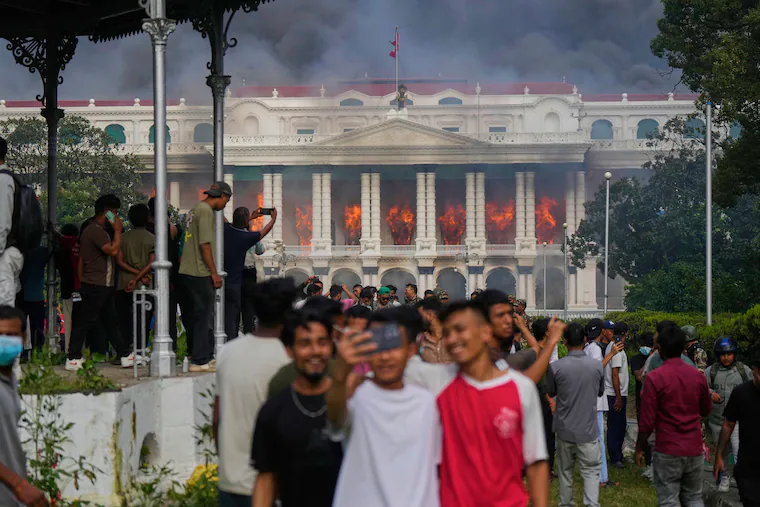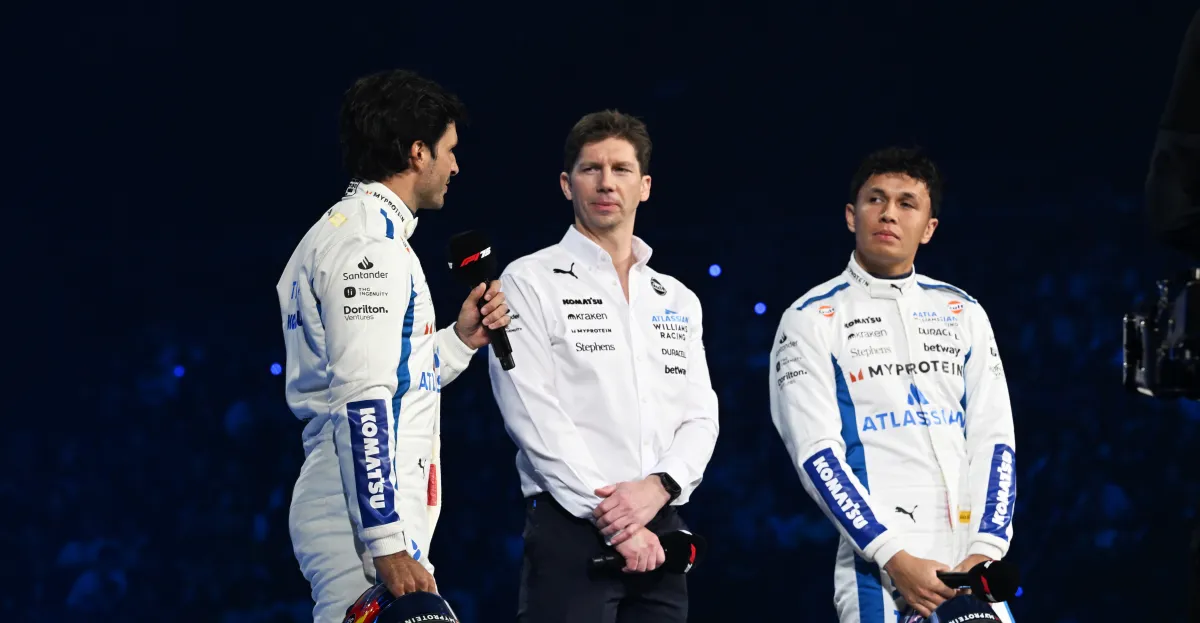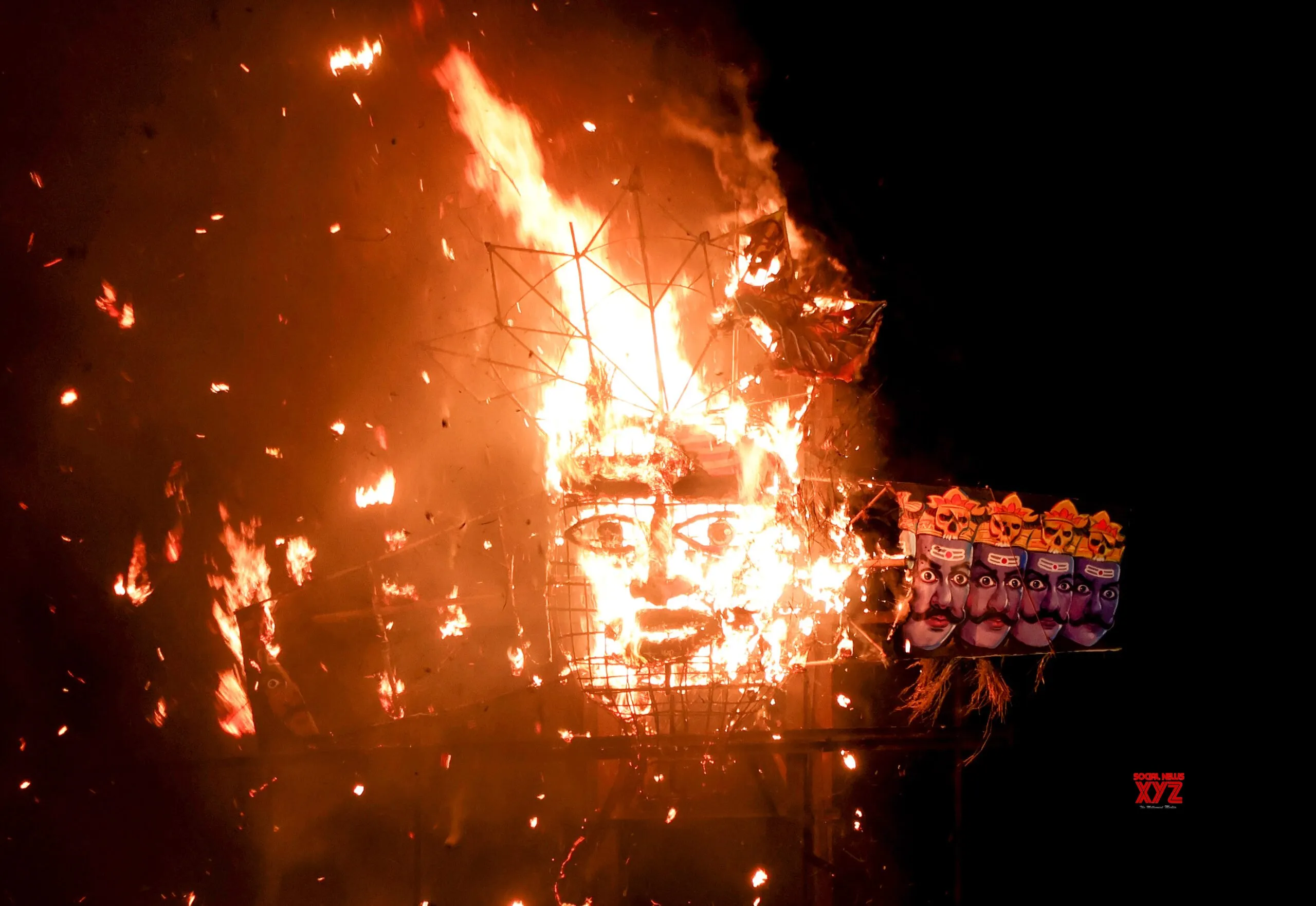
After the streets of Morocco burned for the fifth straight night on Wednesday, with mask-wearing protesters torching cars and smashing windows as overwhelmed police fired bullets at looters, the rebels issued a manifesto.
It came over Discord, the worldwide social platform created for young people to connect and play online games like Fortnite or League of Legends, and was issued by a group called GenZ 212 — Morocco’s international dialing code — which proclaims itself as “the voice of a generation forgotten by their leaders.”
The loosely organized and leaderless online collective has decried the more than $5 billion that the North African nation is investing on gleaming new stadiums to co-host soccer’s 2030 World Cup, when more than one-third of young people are unemployed and its public hospitals are in crisis. “The right to health, education and a dignified life is not an empty slogan but a serious demand,” GenZ 212 said in Wednesday’s statement, as it urged, unsuccessfully, for the protests to stay peaceful.
Morocco’s massive unrest — in the same corner of the world where a Tunisian street vendor’s self-immolation and nascent social media triggered 2011’s Arab Spring — should be a huge story if it were happening in isolation. But Morocco is hardly alone.
As the 2025 calendar flipped from summer into fall, the 20-somethings and teens collectively known as Gen Z, or “zoomers,” have taken to the streets in a series of mostly developing countries that are separated by oceans and thousands of miles, yet linked by sites like Discord and TikTok and a worldview defined by video games and anime.
Indeed, the same avatar — a pirate flag showing a straw-hat wearing cartoon skull, from the popular Japanese anime One Piece that depicts young rebels who take on corrupt governments — has been flown in the streets of boisterous and sometimes violent Gen Z protests in the Philippines, Nepal, Madagascar, Peru, and elsewhere.
“We see the flag as a symbol of liberation against oppression … that we should always fight for the future we deserve,” a 23-year-old recent college grad turned street activist in Manilla, Eugero Vincent Liberato, told the Guardian newspaper.
The upheaval provoked under this banner has been remarkable. On Monday, Madagascar’s president, Andry Rajoelina, dissolved his government after young protesters rallied against constant electricity and water shortages. Last month, protesters in Nepal furious with a high-level corruption and a social-media ban burned down government buildings, forcing the resignation of the South Asian nation’s prime minister and other top officials.
To invoke Buffalo Springfield’s timeless 1966 tribute to the power of youth protest, there’s something happening here. But so far in 2025, it’s more accurate to say there’s something happening there. Despite the U.S. rise of a regime enriching itself to the tune of billions of dollars and 20-somethings’ fury over high rents and student debt, there are few signs of a Gen Z revolution in America.
Yet.
I spoke Wednesday with Mark Beal, a Rutgers University assistant professor of communications who has made a specialty of studying Gen Z — especially the 41 million Americans who were born between 1997 and 2013. He told me that the global uprising bears the stamp of this first generation born into the modern digital world.
“Gen Z has had technology in the palm of their hand since a young age — age 3, 4, 5,” Beal said, and this cohort has already shown its skill at using digital tools to create social movements. What seems to have changed in recent weeks is a sudden focus on the political corruption of the boomers and Gen Xers who govern their world, and a willingness to take it outside, showing amid chaos and fire how fragile these regimes really are.
“I realized if I stop now, who’s gonna stand up again? If I don’t do it, who’s going to do it?,” a 25-year-old activist from a group called Gen Z Madagascar who refused to give his name told the Guardian, adding: “Because it’s been 15 years that this regime has brought people to its knees and right now we’re standing up. So we are the last hope of this generation.”
But while social media platforms like Discord have helped the uprising jump from country to country like a wildfire, there are also important differences between the mostly developing nations where revolution is taking place, and the more muddled politics and potential influence of Gen Z in the United States or other Western nations.
» READ MORE: The day young voters lined up to keep the American republic for 2 more years
One reason that zoomers can topple the government of Madagascar is that there are so many of them, thanks to higher birth rates. The median age in the East African island nation is just 19.2, which is slightly less than half the U.S. median (38.7). And the concentration of young people around capital cities makes it easier for an instant protest to have more impact than is likely in the vastness of America.
While it’s easy to find the commonalities between Morocco’s World Cup building boom and Donald Trump’s regime, which continues to spend $200 million on a White House ballroom while a gridlocked federal government shuts down, there are some key differences.
Although Kamala Harris did win the Gen Z bloc in the 2024 election — despite Trump’s lies to the contrary — and polling has shown youth voters turning away from the returned president in less than nine months, there are still millions of young MAGA supporters, particularly among white men. That may in part be stirred up by a backlash to Western movements for feminism or LGBTQ rights that are weaker in the Global South.
What’s more, a different faction of American zoomers — left-leaning college students, especially at more elite schools — did rise up with a substantial protest movement in 2024, over Palestinian rights and Israel’s conduct of the war in Gaza. But their encampments were strongly suppressed by a combination of militarized police called onto campuses and cowed administrators threatening to suspend and expel students and jeopardize their careers, in a land where life is precarious enough for 20-somethings who do have jobs. This fall, the lack of campus protest while the Trump regime wages a war on higher ed has been a palpable silence.
Instead, over the last year, the 20-something American men who’ve been radicalized on gaming sites like Discord have not been a mass movement but scattered lone wolves — atomized in a nation of intense loneliness, getting high-powered armed rifles in the only nation flooded with them, and locating a rooftop. Instead of a Gen Z revolution, the United States so far has generated only Gen Z assassins who’ve targeted Trump (a 20-year-old gunman), Charlie Kirk (22) and the Dallas ICE shooter (29, on the cusp between Gen Z and Millennials).
To paraphrase today’s song, what it is ain’t exactly clear. Are these 20-somethings making muddled political statements with bullets and marked shell casings another case of American exceptionalism, an ugly but isolated Second Amendment contagion? Or are these assassination attempts the harbinger of a wider youth rebellion coming here soon?
This spring, a Harvard poll found that 51% of Americans under age 30 thought America was on the wrong track, while just 15% see the nation as on the right path. Little different from Madagascar or Nepal, U.S. Gen Z would love to change the world, but they don’t know what to do. The good news is that 2025 has also brought a powerful example that change doesn’t have to grow out of the barrel of a gun.
In New York City, a once-obscure 33-year-old state assemblyman named Zohran Mamdani ran for mayor actually talking about the issues — soaring rents, subpar mass transit, lack of child care — that Gen Z cares about but get lost in the boomer head games of aging Republican and Democratic elites. Mamdani won a smashing upset victory in the Democratic primary and is on track to become mayor of America’s largest city, promising change through ballots, not bullets.
In New York City, just like in Kathmandu and Antananarivo, a decrepit ruling class didn’t see the Gen Z revolution coming. Could it happen here, in the rest of America? Hell yeah. The real question that zoomers pose is an echo of the Trump regime’s mafioso threats. They can do this the easy way, in the voting booth. Or they can do this the hard way.



